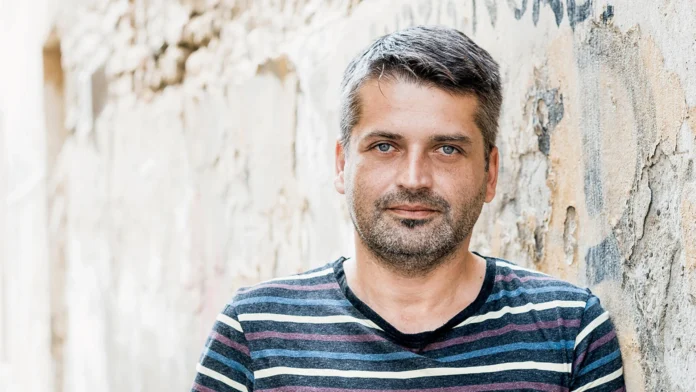Slovakia faces its gravest democratic crisis since 1989 as Prime Minister Robert Fico’s ruling coalition pushes forward a Russian-style “foreign agents” law that would allow the state to surveil, punish, and dissolve NGOs without court oversight—marking a radical authoritarian turn away from the European Union and towards Moscow’s legal model. In a scathing critique, philosopher Fedor Blaščák—managing director of the Slovak Open Society Foundation and head of the Platform for Democracy, the country’s leading civil society coalition—warns that the legislation, cloaked in the language of transparency, in fact resurrects Kremlin tactics used by Vladimir Putin to crush dissent—equating civil activism with criminality and institutionalising political control. Though framed as lobbying regulation, the law would target only NGOs, not oligarchs or corporate lobbyists, and includes provisions for invasive data collection and administrative shutdowns, posing an existential threat to the country’s thirty-five-year-old culture of civic resistance. Scheduled for a parliamentary vote on 9 April 2025, its passage would not only dismantle legal protections for non-governmental organisations but symbolise Slovakia’s first decisive legal rupture with EU democratic norms—one that, Blaščák argues, even former strongman Vladimír Mečiar never dared to attempt.
Slovakia’s ruling coalition, led by populist Prime Minister Robert Fico, is advancing legislation that human rights advocates and legal experts warn would mark the country’s most serious attack on civil liberties since the fall of communism in 1989. Writing in SME, public intellectual and civil society advocate Fedor Blaščák argues that the proposed law, targeting non-governmental organisations (NGOs), is “evidently discriminatory and unconstitutional,” and bears striking resemblance to Russia’s infamous “foreign agent” legislation.
Civil resistance, not “servile mentality”
Blaščák challenges a common trope in Slovak public discourse that blames Slovakia’s recurring authoritarian tendencies on a so-called “servile mentality” among its people—an idea rooted in the myth of a “thousand-year oppression” popularised by pro-regime ideologue Vladimír Mináč before 1989. Instead, Blaščák points to Slovakia’s vibrant history of civic resistance, highlighting landmark democratic moments: the 1988 Candle Demonstration in Bratislava against communist rule; the 1998 electoral defeat of authoritarian leader Vladimír Mečiar; the 2018 mass protests following the murder of investigative journalist Ján Kuciak and his fiancée Martina Kušnírová; and the country’s pro-EU demonstrations in 2024–25.
These events, he argues, prove the strength of an active and resilient civil society—where “at least two generations of citizens and activists know from experience that protests can drive political change.” Slovakia’s robust civic engagement, he says, makes it a “textbook example of a growing democratic consciousness,” not a passive population accepting oppression.
The proposed NGO law: Origins and implications
The government’s current attempt to introduce a law targeting NGOs was first signalled by Fico in October 2023, when he declared “the era of NGOs ruling the country is over” and called for a “foreign agents” law. The proposal, introduced by MPs from the governing coalition, echoes legislation adopted in Russia in 2012 and Hungary in 2017—both designed to stigmatise and suppress organisations receiving foreign support.
Though initially stalled in parliament, likely due to concerns over conflict with European Union law, the proposal resurfaced in a revised form. The new version no longer brands NGOs as “foreign-supported organisations” but as “lobbyists.” It claims to promote transparency in the civic sector, but as Blaščák points out, it discriminates by singling out NGOs while exempting private firms, oligarchs, and corporate lobbyists from scrutiny.
If passed, the law would significantly increase bureaucratic burdens on NGOs and expand the state’s authority to monitor, sanction, and even dissolve organisations through administrative decisions—without judicial oversight. Alarmingly, it would also allow state offices to collect personal data on all members of an NGO, not just its legal representatives.
A strategic shift away from the EU
Blaščák draws an explicit line between the proposed law and Russia’s post-2012 descent into dictatorship. He warns that Slovakia is now on a similar trajectory. The Kremlin’s law initially imposed only fines; it later evolved to include prison sentences of up to five years and contributed to a full-scale crackdown on dissent.
Describing the Slovak proposal as a “Russian law” is not rhetorical exaggeration, Blaščák insists, but a necessary recognition of the authoritarian legal model it embraces. If adopted, he argues, the legislation would represent more than just another political skirmish: it would symbolise Slovakia’s geopolitical and normative pivot—from European democratic standards towards autocratic governance. “This is no longer about photos of Fico with Putin,” Blaščák writes. “It’s about legal acts that materially restrict civil liberties in Slovakia. Our liberties.”
The law is scheduled for a parliamentary vote on 9 April 2025. If approved, Blaščák contends, this date will mark a historic break: “the moment Slovakia turned away from the European Union and towards Russia.”
A call to defend civil society
The proposed law comes amid growing nationwide protests, initially sparked by the government’s attempts to dismantle the criminal code and judiciary checks. Demonstrations have since widened to include artists, students, and pro-EU citizens. Ironically, it is Fico’s rhetoric—such as accusing protestors of plotting a “state coup”—that has further mobilised opposition.
According to Blaščák, the strength of the current civic response lies in the legacy of past mobilisation. Since 1990, Slovakia has maintained a legal environment conducive to citizen engagement, grounded in constitutional rights to freedom of association. That framework now faces its greatest threat in over three decades.
“The law targeting NGOs,” Blaščák warns, “is a battle for the soul of civil society. Not even Mečiar dared go this far.” The outcome will shape not just the future of NGOs in Slovakia, but the nation’s broader democratic identity and strategic alignment in an increasingly divided Europe.
Source: Fedor Blaščák | SME.SK



